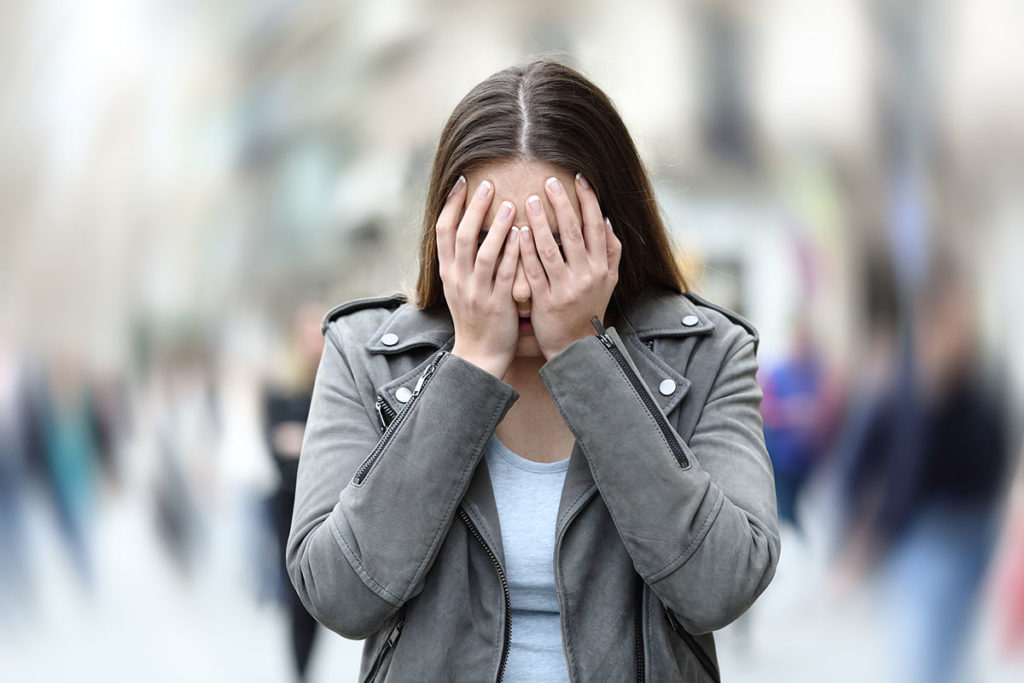You’re sweating. Your heart is pounding, you feel dizzy and are convinced the world is coming to an end. You’re having an anxiety attack. And it puts you at risk of problems such as substance abuse. But what are the triggers of an anxiety attack?
That’s the crazy thing. There may not be a trigger. Anxiety disorders occur when your flight or fight reflex kicks in for no reason. Yet, there are still patterns you can recognize. By understanding the triggers of an anxiety attack, you can build coping skills to keep from feeling overwhelmed.
Anxiety Attacks, Defined
Anxiety attacks, also known as panic attacks, involve moments, where a person feels an uncontrolled sense of fear or stress – very seriously like the world, is coming to an end. Symptoms include:
- Chest pain or discomfort.
- Rapid heart rate
- Sweating
- Choking or gagging
- Shaking
- Dizziness
- Nausea
Anxiety attacks, unfortunately, seem to happen in bunches. Not only that, but people who suffer from anxiety may decide to self-medicate, leading to substance abuse problems. Understanding the triggers of an anxiety attack can help stop that from happening.
Triggers of an Anxiety Attack
Part of what makes anxiety attacks so scary is that they come on without warning — and sometimes, seemingly without any reason. That makes finding solutions a lot of hard work as you work through therapy and drug regimens.
The triggers of an anxiety attack can be tied to a specific situation — say, you have a certain phobia, such as fearing heights. If you must go to a meeting on the top floor of a building, you might feel overwhelming anxiety.
Other triggers of an anxiety attack can include health fears — you’re feeling odd sensations and are convinced something is seriously wrong with you. When those sensations arise, it can lead to mounting fears.
Heading into uncomfortable environments where you feel trapped, such as a grocery store, facing a social situation such as giving a speech; even certain medications or overconsumption of caffeine can also be triggers of an anxiety attack.
Dangerously, anxiety attacks can lead down the wrong path. Some people will choose to self-medicate with drugs or alcohol and end up with substance abuse. Knowing the triggers of an anxiety attack and how to avoid them and cope with them, can help you avoid that wrong path.
Treatment for Anxiety
Recognizing the triggers of an anxiety attack provide you with a big advantage. It enables you to understand what you need help with and seek the right type of treatment. Treatment for anxiety usually involves therapy, led by a clinically trained psychologist or a social worker. Therapy for counseling takes many forms; one of the most common is called cognitive-behavioral therapy. In CBT sessions, you work with a counselor to confront and face your challenges to overcome harmful thoughts and behaviors.
You can also address the triggers of an anxiety attack through medication. A common class of drugs is selective serotonin reuptake inhibitors such as Prozac and Paxil. Sedatives such as Valium and Xanax are possible, but doctors prescribe them with great care for fear of creating dependence.
Getting Help for Anxiety
Understanding the triggers of an anxiety attack can make it easier to build coping skills for those moments when life feels out of control. By controlling your anxiety, you lower your risk of complications such as substance abuse. Should you need help with substance abuse, consider Right Step Houston. Our experienced counseling team provides addiction treatment that addresses a broad spectrum of needs. Let us help you get back on the path to sobriety. We provide support through medical drug detox programs, inpatient drug treatment centers, outpatient rehab programs, and alcohol addiction treatment. We also provide aftercare support to lower the risk of relapse. Contact us at 1.844.768.0169 for a confidential, caring consultation.

